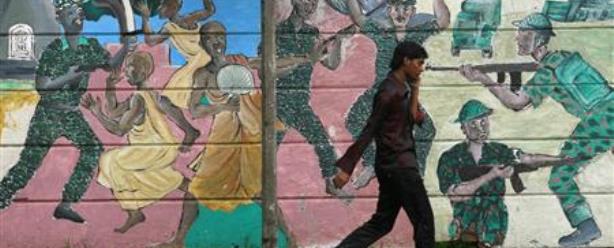A final decision on an independent mechanism to address issues of missing persons and alleged violations of human rights and humanitarian law will be taken after discussions with all concerned, including civil society and victims, a Foreign Ministry spokesperson said.
All international partners, including the United Nations Human Rights High Commissioner Zeid Ra’ad Al Hussein, appreciate that, for any mechanism to succeed, all those concerned must be consulted, said Mahishini Colonne, who also heads the Foreign Ministry’s UN Division. She said such mechanisms must be evolved through mindful and careful deliberation as opposed to being rushed.
Last month, President Maithripala Sirisena told newspaper editors that a domestic mechanism would be set up by June as the Office of the High Commissioner for Human Rights (OHCHR) was to release in September the results of an investigation into war crimes allegations against Sri Lanka.
Consultations were continuing, but there was nothing on paper yet, Ms. Colonne said. “The setting up of an independent mechanism to address issues relating to missing persons is being discussed. Similarly, the most appropriate ways to address issues of alleged violations of human rights and humanitarian law are also being discussed.”
She said a lack of “mindful and careful deliberation” was the reason for the failure of many past mechanisms. In February, Foreign Minister Mangala Samaraweera requested the OHCHR to postpone the release of the results of its investigation.
The Minister had said discussions were already underway “on the kind of domestic mechanism that should be put in place and the nature of the assistance that would be required from your office and other international partners”. The deferral was granted. As such, it was widely expected that a domestic mechanism would be in place before the scheduled release of the report.
Minister Samaraweera was in London this week and held talks with Tamil diaspora groups, including the Global Tamil Forum which has been broadly supportive of President Maithripala Sirisena’s reconciliation and post-war efforts. TNA Parliamentarian M. Sumanthiran and other Tamil diaspora groups are reported to have participated.
Erik Solheim, a former Norwegian Government negotiator in the Sri Lankan peace process, and a representative of the South African Government were also present. The Sri Lanka Foreign Ministry did not release details, saying it was “a private visit”.
President Sirisena, too, met Tamil diaspora groups during his official visit to London in March. The Government wants to continue engagement with all segments in its search for reconciliation and a viable domestic mechanism, official sources said.
